
views
X
Trustworthy Source
PubMed Central
Journal archive from the U.S. National Institutes of Health
Go to source
Fortunately, there are ways, both natural and medical, to treat and balance your hormones.
Changing Your Diet to Promote Hormonal Balance
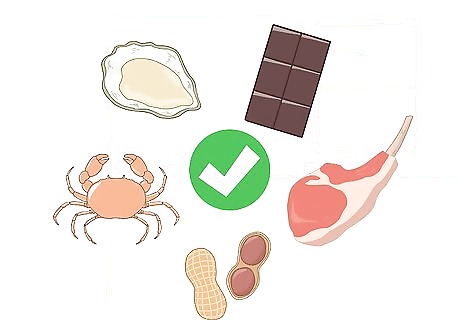
Include zinc-rich foods or supplements to promote sex hormone balance. Zinc is an essential nutrient for hormonal balance, especially for balancing your sex hormones. Eat 1 to 2 servings of a zinc-rich food every day. Foods high in zinc include: Dark chocolate Peanuts Beef Veal Lamb Crab Oysters
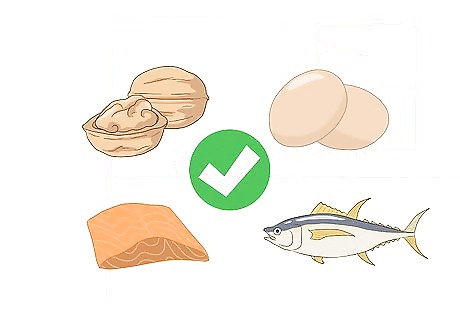
Eat foods high in omega-3 fatty acids to improve the flow of hormones. Omega-3 fatty acids create healthy cell membranes, which makes it easier for hormones to reach their destinations within the body. Some good foods to include are: Walnuts Eggs Sardines Trout Salmon Tuna Oysters

Get more fiber in your diet to eliminate excess estrogen. Fiber binds itself to excess estrogen. This will help your body to clear the excess estrogen out of your system. High-fiber foods include: Beets Spinach Whole grains Raw fruit Raw vegetables Beans Nuts Seeds Broccoli
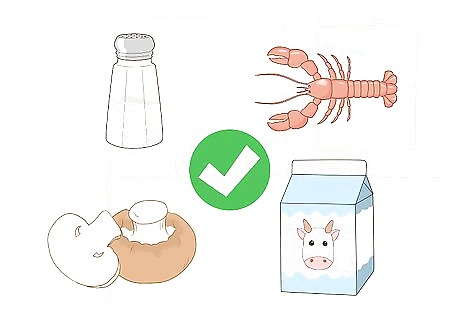
Include thyroid hormone boosting foods. Iodine is also crucial for thyroid function, but most people get plenty of iodine in their diets without supplementing. Talk to your doctor if you have any concerns and make sure to include the following foods in your diet: Brazil nuts, tuna, crab, and lobster to get enough selenium. Milk, eggs, salmon, and mushrooms to get enough vitamin D. Meat, dairy, and fortified cereals to meet your daily vitamin B12 requirement.

Limit raw cruciferous veggies and soy to promote thyroid health. Although these foods are generally considered healthy, they may interfere with thyroid hormone production if you eat them in excess. Try to limit your intake of these foods to only 1 or 2 servings per week. Examples of cruciferous veggies and soy include: Broccoli Cauliflower Kale Brussels sprouts Tofu Soy milk Soy-based products like veggie burgers
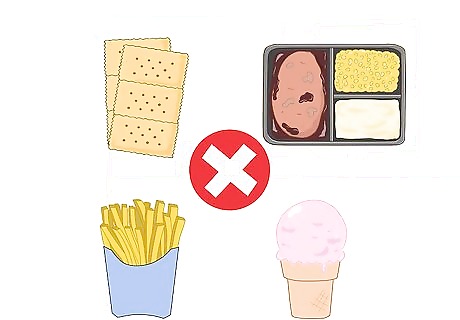
Steer clear of processed, fried, sugary, and fatty foods. These foods are more likely to disrupt your hormones and lead to a hormonal imbalance. Examples of foods to avoid include: Processed packaged foods, such as cookies, chips, and crackers Frozen foods, such as TV dinners, frozen waffles, and ice cream Fast foods, such as French fries, burgers, and pizzaWant to completely overhaul your diet? Consider adopting a hormone-balancing diet, such as the thyroid diet to help balance your thyroid hormones.
Using Lifestyle Changes
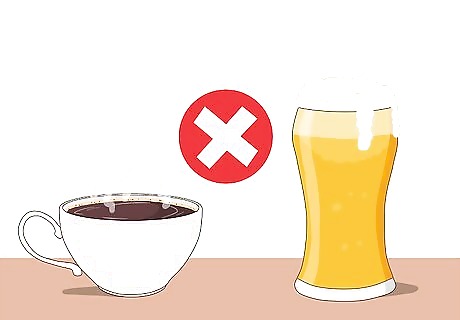
Avoid caffeine and alcohol to prevent female hormonal imbalances. Excessive intake of beverages that include caffeine or alcohol may affect a woman’s hormonal balance, and this may contribute to infertility. Stick with decaf coffee, decaf tea, and non-alcoholic drinks instead. For example, you could exchange your morning coffee for a cup of decaf coffee or a cup of decaffeinated herbal tea, such as peppermint decaf chai. Try making yourself a non-alcoholic mocktail at your next social function, such as a glass of club soda with a splash of cranberry juice and a lime wedge.
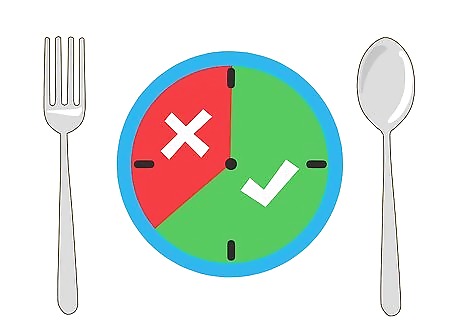
Try intermittent fasting. Intermittent fasting is abstaining from eating food for a set period of time, whether it’s 1-2 days a week or not eating during the day. When you fast, it can help your circadian biology and balance your hormones.
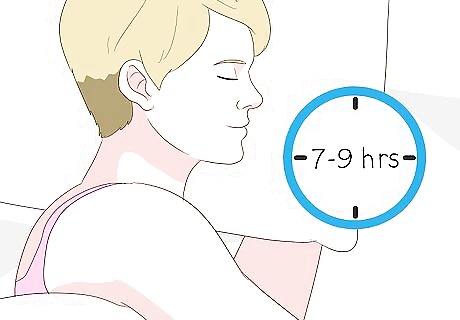
Sleep for 7 to 9 hours per night. Not getting enough sleep may also result in a hormonal imbalance, so make sure that you get plenty of sleep every night. Start going to bed a little earlier if you tend to stay up late. For example, if you normally go to bed at 11:30 pm and wake up at 6:00 am, then move your bedtime back to 10:30 to ensure that you are getting at least 7 hours. Sleep in the darkest environment you can to increase melatonin production and get the best sleep. Make a daily routine of going to bed and waking up at the same time to help stabilize your circadian rhythms and hormones.
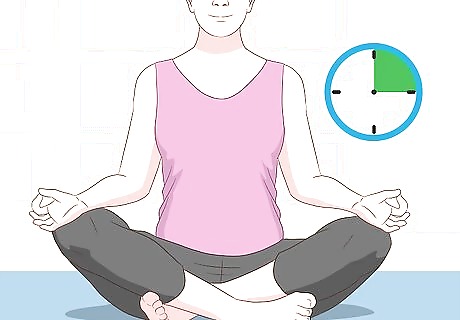
Use relaxation techniques to manage stress. Stress may also contribute to a hormonal imbalance. To ensure that your stress levels are under control, devote at least 15 minutes per day to relaxing. Some effective ways to relax include: Performing progressive muscle relaxation Doing yoga Doing a deep breathing exercise Meditating

Exercise for 30 to 60 minutes 5 days per week. Regular exercise helps to regulate the hormones that control hunger, stress, and metabolism. Get into the habit of going for a walk, riding your bike, taking aerobics classes, or doing some other form of exercise that you enjoy. Even small amounts of exercise count! Try taking a brisk 10-minute walk, dancing around your living room for 10 minutes, or doing squats and jumping jacks during commercial breaks when you are watching TV.
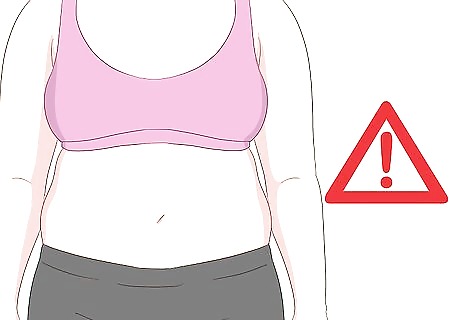
Maintain a healthy body weight. If you are overweight or obese, then this may be contributing to your hormonal imbalance. Losing weight and maintaining a healthy body weight will help to balance your hormones. Talk to your doctor before you begin a weight loss program to ensure that this is a good strategy for you. You can check your BMI with an online BMI calculator to determine if you are at a healthy weight or if you are overweight or obese. Increased sugar and processed starch intake, as well as stress, can cause you to gain weight. Do your best to eliminate sugar and carbs from your diet, and manage your stress levels.Tip: Keep in mind that you may be overweight and have normal hormone levels. Check with your doctor to determine if this is the cause of your hormonal imbalance.
Seeking Medical Help
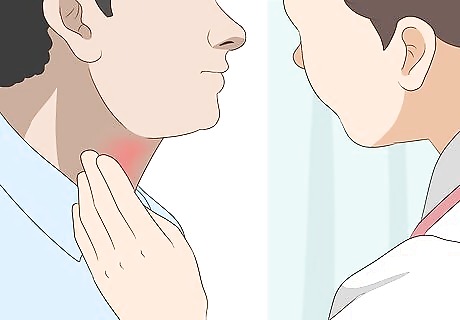
Talk to your doctor if you suspect a hormonal imbalance. Your doctor can run tests to determine if you have a hormonal imbalance and to detect nutrient deficiencies. An underlying nutrient deficiency may be to blame for your hormonal imbalance. For example, if you are deficient in iodine, then this may be affecting your thyroid.
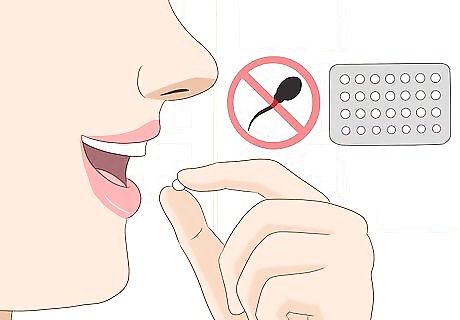
Start on an oral contraceptive. Birth control does more than simply halt reproduction. The pills contain synthetic hormones that are capable of balancing out high levels of estrogen and low levels of progesterone. Ask your doctor if this might be an appropriate treatment for you. Keep in mind that there are risks and potential side effects of taking birth control. Discuss these with your doctor before deciding if this is right for you.
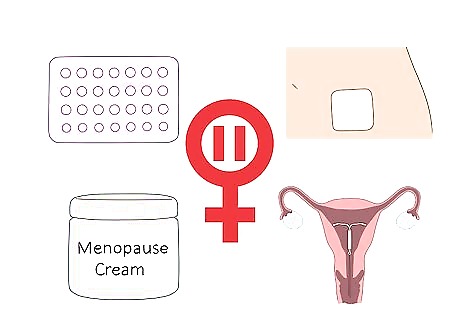
Go on menopausal hormone replacement therapy. Hormone replacement therapy is the prescription equivalent of over-the-counter hormone supplements. Menopausal women are occasionally treated with doses of estrogen, progesterone, or a progestin-estrogen combination. You may have the option of taking hormones in the form of pills, a patch on the skin, a cream, or an intra-uterine device. Some common side effects of hormone replacement therapy medications may include bloating, leg cramps, breast tenderness, headaches, indigestion, mood swings, depression, back pain, and vaginal bleeding.
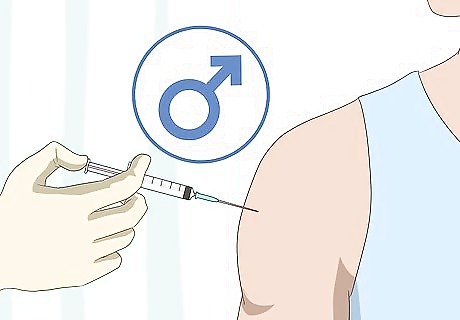
Ask your doctor about testosterone therapy. Testosterone therapy may be an option if you are male and have low testosterone. Low testosterone in men can contribute to sleep problems, weight gain, depression, and reduced libido. If you have been experiencing these symptoms, then talk to your doctor about testosterone replacement therapy. Your doctor will need to run tests to confirm that low testosterone is the issue. Keep in mind that there are risks to taking testosterone, such as enlarged prostate, sleep apnea, decreased sperm count, acne, enlarged breasts, and blood clot. Discuss these risks with your doctor before starting treatment.Tip: Testosterone is also present in the female body, but it's okay if your testosterone is low if you are a woman. In women, it contributes to the libido and is responsible for many of the changes women go through during puberty, including acne, vocal changes, and growth.
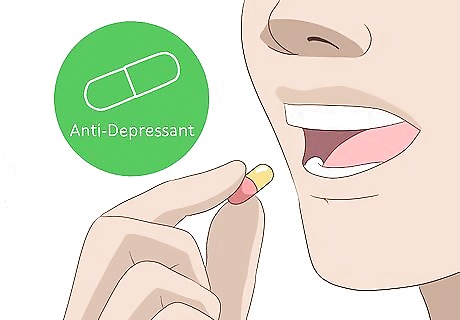
Ask your doctor about anti-depressants along with hormone therapy. Most antidepressants work by balancing out serotonin levels, which drop in response to low estrogen levels. Some have also proved moderately effective in reducing hot flashes in hormonally-imbalanced, menopausal women. You might consider taking an antidepressant if you are experiencing symptoms of depression as a result of your hormonal imbalance. Keep in mind that antidepressants may have other side effects. Discuss these with your doctor as you decide whether or not antidepressants are right for your situation.

















Comments
0 comment